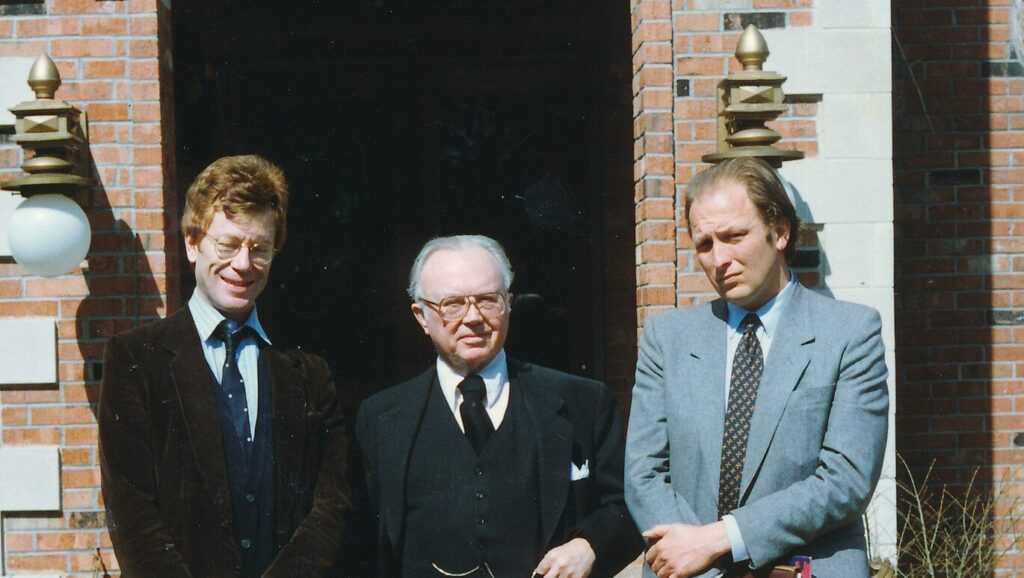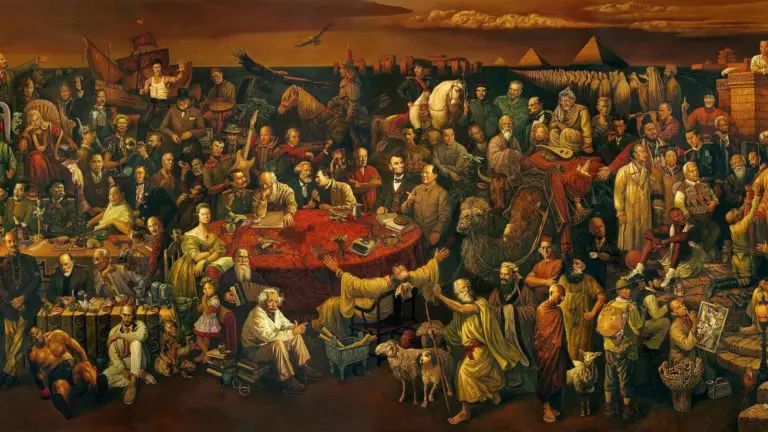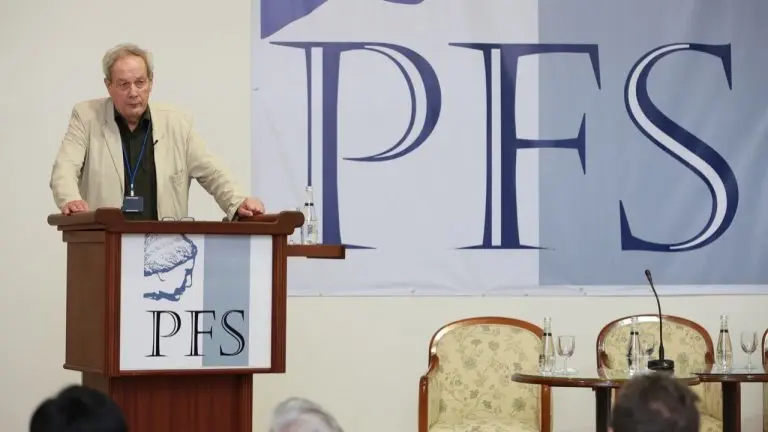If conservatives wish to live lives that have meaning and purpose, bound to family life and a local community, and situated within a religious and ethical apprehension of the world, to whom should they turn? Where can one turn for a humane conservatism? To these questions, it seems obvious to me that Russell Kirk and Sir Roger Scruton are two giants from whom we can seek answers.
They are complementary thinkers, both of whom were traditionalist conservatives in their respective countries of the United States and the United Kingdom. Both have had a profound and positive impact on my personal thinking. Many conservatives over the years have noted that to create is difficult and that it is easy to destroy. Both Kirk and Scruton were creators, indeed, both founded their own publishers, The University Bookman and Claridge Press. I think their humane and imaginative conservatism is the way forward for conservatives today.
Kirk studied at Michigan State College (now Michigan State University), Duke University, and the University of St. Andrews. He published 32 books, including The Roots of American Order, America’s British Culture, Eliot and His Age: T. S. Eliot’s Moral Imagination in the Twentieth Century, and Edmund Burke: A Genius Reconsidered. For a later edition of the last of these works, Scruton wrote the Foreword.
In that Foreword, Scruton wrote that Edmund Burke’s “writings … laid the foundation for a political philosophy which has lasted to our day.” Turning his attention to Kirk, Scruton wrote that “[t]here is no finer monument to Burke than this by his most original American disciple.”
The appreciation was reciprocal. In April of 1988, Kirk penned a letter to Charles Heatherly writing that he had “intended to talk” with him about the “possibility of your arranging one of the Bradley Fellowship for Dr. Roger Scruton,” before mentioning Scruton’s The Meaning of Conservatism and The Salisbury Review, which he considered “most admirable.” In his concluding sentence, Kirk wrote that “I find him the brightest of all English conservatives.”
Scruton wrote over fifty books on philosophy, religion, the environment, and conservatism. Born in 1944, in the closing mists of World War II, he attended Jesus College, Cambridge, where he took a Double First in Moral Sciences (Philosophy). In 1972, he received his Ph.D. from the university on the topic of aesthetics. A book based on his thesis was published in 1974 under the title Art and Imagination: Study in the Philosophy of Mind. His intention, in his own words, was to “show that, starting from an empiricist philosophy of mind, it is possible to give a systematic account of aesthetic experience.”
In the library at Piety Hill, Kirk’s ancestral home, there are photographs from Scruton’s visit. It’s worth noting that the name Piety Hill was not bestowed by Kirk but rather by locals during a time when his great-aunt was conducting seances there. But the name is appropriate, for both Scruton and Kirk understood the importance of piety in broader conservative thought. Put another way, they understood that law, ordered liberty, community, and tradition are essential to human prosperity and flourishing.
They had their differences, too. Scruton believed that Kirk was too romantic and that he did not read enough of the German philosophers, especially Kant and Hegel. Kirk, for his part, criticised Scruton for reading too much German philosophy and not enough of Christopher Dawson. Scruton once said to me—with a wry smile on his face—that I must get my romanticism from Kirk. He was right, of course.
Both men are recognised for their development of serious intellectual conservatism. In 1989, President Reagan conferred on Kirk the Presidential Citizens Medal, the second-highest civilian award in the United States. In 2016, Scruton was honoured with a knighthood in the late Queen’s Birthday Honours. Earlier, in 1998, he had received the Medal of Merit (First Class) from Czech President Václav Havel; and later, in 2019, Hungarian Prime Minister Viktor Orbán presented him with the Order of Merit of the Republic of Hungary.
It is said that behind every great man is a great woman. That was certainly the case for both Kirk and Scruton. Mrs. Kirk is an educational crusader: during the Reagan years she was appointed to the National Commission on Excellence in Education and, a few years later, was appointed to the Committee on Education of the United States Catholic Conference. In 1999, Lady Scruton and her husband established Horsell’s Farm Enterprises, which puts into practice a conservative green philosophy through consultancy and diversified farming. They also started the Scrutopia Summer School at their home, Sundey Hill Farm.
The conservatism of Kirk and Scruton can guide us towards a humane and meaningful life. Both Kirk and Scruton teach us what it means to be really human. Fundamentally—through their writings, through the institutions they built, and by their deeds—they convey to us the most important lesson of all: life is worth living.






